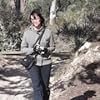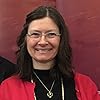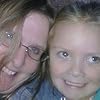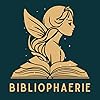
A Goodreads user
asked:
I want to read this book, but I'm wondering: Can anyone recommend something with a similar message but with a less overtly Christin perspective? I want to buy it for a friend who isn't Christian, and from the preview I saw the information seems solid but it mentions God and the Bible pretty constantly so I'm wondering if there's something a little more toned down.
To answer questions about
Boundaries: When to Say Yes, How to Say No to Take Control of Your Life,
please sign up.
Catharine
As a non-christian who experienced religious abuse from people who used the bible as a spiritual weapon when I was younger, I gotta say I completely disagree with everyone saying this book is fine for non-christians.. It was not easy at all to simply overlook the religious parts. I can do that when it comes up in other contexts in my life. But not when I'm trying to read a book to help me with healing vulnerable problems. I can't tell you what book would be better, but I can say it depends on a person's history and experience with the bible as to whether or not this book would be appropriate for them.
Angelissa
I don't agree with Ying Ying. As a person who isn't religious, I found this to be kind of overbearing. Look into Louise Hay or Brene Brown.
Belinda
I read Boundaries: Where You End and I Begin by Anne Katherine. This was several years ago. From what I remember, it is more of a typical psychology/ self-help book about co-dependence, i.e. no Christian references. It is because of that book that I wasn't as impressed with Cloud & Townsend.
Debbie Duquette
I am a clinical social worker and I avoid having religious aspects in the books I read or recommend to my therapy clients. (I've had many clients who for various reasons are turned off by spirituality.) I often recommend Anne Katherine's Boundaries: Where I End and You Begin and I like Better Boundaries by Jan Black.
May
I don't personally know of similar books without the Christian perspective, but I will say that I really enjoyed this book even as an atheist. While I don't believe in God, I do think that there are good morals and principles in Christianity. So, I didn't actually skip the Christian parts, instead, I transformed them to be meaningful and useful to me.
For example:
-When the book suggests talking to God, I think of it as talking to my conscience, or building a relationship with myself.
-When it suggests that God has a plan, I think of it as letting go of worry for things I can't control.
-Going to church is like dedicating time once a week to: Connect with yourself. To think about what you want in life, analyze if they are reasonable goals, and think about how to achieve them. To think of anything you've done that was against your moral judgement, figure out how to fix those things, and forgive yourself for the mistakes after you've done what you could to fix them.
For example:
-When the book suggests talking to God, I think of it as talking to my conscience, or building a relationship with myself.
-When it suggests that God has a plan, I think of it as letting go of worry for things I can't control.
-Going to church is like dedicating time once a week to: Connect with yourself. To think about what you want in life, analyze if they are reasonable goals, and think about how to achieve them. To think of anything you've done that was against your moral judgement, figure out how to fix those things, and forgive yourself for the mistakes after you've done what you could to fix them.
Ying Ying
I think even someone non-Christian would highly enjoy the book. I have skipped the overly biblical sections, and the message was still very meaningful.
Rosalba Reutzel
Great book! I am a Christian and so I can tell you that the reason for the biblical references, is to show Christians that his insights and wisdom are backed up by the Bible. So you don't have to be a believer to enjoy the book. The references are just reiterating his message.
Sandralena Hanley
Try "In Sheep's Clothing: Understanding and Dealing with Manipulative People" by George K. Simon Jr.
Alanklm
The best alternative I've found is (still have to read it): https://www.goodreads.com/book/show/3... It is far from ideal, but Christianity basis for any self-development book is absolutely unacceptable to me. So Miller and Lambert's book is better than nothing.
Nicole Jamerson
Enjoying the book. Found it at Ollie's for $3.99 but there was only one. I would recommend it for anyone.
Bibliophaerie
I'm not a practicing Christian so I tend to skim over the biblical parts but I can't deny that this book is super solid in terms of the wisdom it has to offer. I'm really enjoying it.
Mandy
I would recommend Where to Draw the Line by Anne Katherine. It has a section on spiritual boundaries so does reference religion and Christianity but is not heavy-handed.
Safkat
Honestly, I would just skip the biblical references. It is very easy to do. Not that I don't enjoy reading them. It is just sometimes, most of the references talk about the same thing. But skipping them in the book is fairly easy.
Swathir
I normally would be bothered by the biblical references, but he doesn't go in-depth with those examples so it is easy to skim by.
About Goodreads Q&A
Ask and answer questions about books!
You can pose questions to the Goodreads community with Reader Q&A, or ask your favorite author a question with Ask the Author.
See Featured Authors Answering Questions
Learn more













